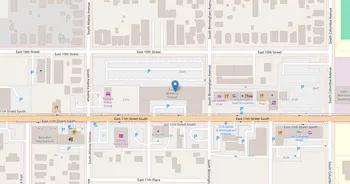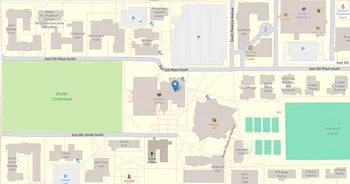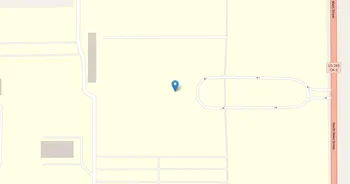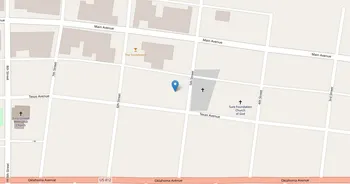Tulsa Community College (TCC) : Overview, Courses, Scholarships & Rankings
About Tulsa Community College
In the heart of Tulsa, students find a college that's plugged into the city and serious about learning. Tulsa Community College is known for teaching-focused faculty, with strengths across transfer studies, career training, health, business, tech, and the arts. Labs and studios, quiet study spots, and libraries support the work, while tutoring, advising, and a career center keep students moving.
Campus life fits real lives. It's commuter-friendly but not sleepy, with clubs, service projects, performances, and intramurals, plus fitness spaces. The vibe is welcoming and no-nonsense, a mix of recent grads and working adults. And downtown you're close to galleries, river trails, and internships. TCC has a reputation for flexible schedules, multiple sites across the city, a strong transfer culture, and ties to local employers.
Key Institutional Details
Contact & Profile
Academic & Institutional
Academic Programs & Fields of Study
Tulsa Community College (TCC) offers 58 degree programs across 23 major academic fields, graduating approximately 2,852 students annually. The most popular fields by graduate volume are Health (17 programs, 610 graduates), Liberal Arts (1 programs, 443 graduates), Business (4 programs, 409 graduates), Interdisciplinary (2 programs, 268 graduates) and Social Sciences (2 programs, 260 graduates). Explore program details, award levels, and graduate demographics below.
Health (17 programs, 610 graduates)
Healthcare Professions, Medical Sciences and Clinical Practice
| Program Name | Graduates | Gender Distribution | Award Levels | CIP Code |
|---|---|---|---|---|
| Pre-Nursing Studies | 184 |
|
Associate's
|
51.1105 |
| Registered Nursing | 184 |
|
Associate's
|
51.3801 |
| Health and Medical Preparatory Programs | 60 |
|
Associate's
|
51.1199 |
| Clinical Laboratory Technician | 41 |
|
Associate's
Residency
|
51.1004 |
| Radiologic Technology | 25 |
|
Associate's
|
51.0911 |
| Physical Therapy Assistant | 17 |
|
Associate's
|
51.0806 |
| Occupational Therapy Assistant | 16 |
|
Associate's
|
51.0803 |
| Dental Hygiene | 13 |
|
Associate's
|
51.0602 |
| Emergency Medical Technology | 13 |
|
Certificate (1-2 yrs)
Associate's
|
51.0904 |
| Diagnostic Medical Sonography | 12 |
|
Associate's
|
51.0910 |
| Respiratory Care Therapy | 10 |
|
Associate's
|
51.0908 |
| Cardiovascular Technology | 9 |
|
Associate's
|
51.0901 |
| Surgical Technology | 9 |
|
Associate's
|
51.0909 |
| Medical Insurance Coding | 6 |
|
Certificate (1-2 yrs)
|
51.0713 |
| Health Information Technology | 4 |
|
Associate's
|
51.0707 |
| Emergency Care Attendant | 4 |
|
Other Award
|
51.0810 |
| Pre-Pharmacy Studies | 3 |
|
Associate's
|
51.1103 |
Liberal Arts (1 programs, 443 graduates)
Liberal Arts Education, General Studies and Humanities
| Program Name | Graduates | Gender Distribution | Award Levels | CIP Code |
|---|---|---|---|---|
| Liberal Arts and Sciences | 443 |
|
Associate's
|
24.0101 |
Business (4 programs, 409 graduates)
Business Administration, Marketing and Entrepreneurship
| Program Name | Graduates | Gender Distribution | Award Levels | CIP Code |
|---|---|---|---|---|
| Business Administration and Management | 364 |
|
Associate's
Other Award
|
52.0201 |
| Accounting and Bookkeeping Technology | 32 |
|
Associate's
Other Award
|
52.0302 |
| Marketing Management | 12 |
|
Associate's
|
52.1401 |
| International Business and Trade | 1 |
|
Associate's
|
52.1101 |
Interdisciplinary (2 programs, 268 graduates)
Cross-Disciplinary Studies and Integrated Research Programs
| Program Name | Graduates | Gender Distribution | Award Levels | CIP Code |
|---|---|---|---|---|
| Multi- and Interdisciplinary Studies | 261 |
|
Associate's
|
30.9999 |
| Nutrition Sciences | 7 |
|
Associate's
|
30.1901 |
Social Sciences (2 programs, 260 graduates)
Sociology, Anthropology and Political Science Studies
| Program Name | Graduates | Gender Distribution | Award Levels | CIP Code |
|---|---|---|---|---|
| Social Sciences | 244 |
|
Associate's
|
45.0101 |
| Sociology | 16 |
|
Associate's
|
45.1101 |
Computer & IT (4 programs, 147 graduates)
Computer Science, Information Technology and Cybersecurity
| Program Name | Graduates | Gender Distribution | Award Levels | CIP Code |
|---|---|---|---|---|
| Computer and Information Sciences | 110 |
|
Associate's
|
11.0101 |
| Computer Programming | 30 |
|
Associate's
|
11.0201 |
| Information Technology | 6 |
|
Other Award
|
11.0103 |
| Computer and Information Sciences, Other | 1 |
|
Other Award
|
11.9999 |
Human Sciences (1 programs, 124 graduates)
Family Studies, Consumer Sciences and Human Development
| Program Name | Graduates | Gender Distribution | Award Levels | CIP Code |
|---|---|---|---|---|
| Child Development | 124 |
|
Associate's
Other Award
|
19.0706 |
Physical Sciences (1 programs, 121 graduates)
Chemistry, Physics and Earth Sciences Research
| Program Name | Graduates | Gender Distribution | Award Levels | CIP Code |
|---|---|---|---|---|
| Physical Sciences | 121 |
|
Associate's
|
40.0101 |
Education (2 programs, 75 graduates)
Educational Sciences, Teaching Methods and Pedagogy
| Program Name | Graduates | Gender Distribution | Award Levels | CIP Code |
|---|---|---|---|---|
| Early Childhood Education | 74 |
|
Associate's
|
13.1210 |
| General Education | 1 |
|
Associate's
|
13.0101 |
Arts (3 programs, 50 graduates)
Fine Arts, Design Studies and Creative Performance
| Program Name | Graduates | Gender Distribution | Award Levels | CIP Code |
|---|---|---|---|---|
| Studio Arts, General | 24 |
|
Associate's
|
50.0702 |
| Theatre Arts | 17 |
|
Associate's
|
50.0501 |
| Music | 9 |
|
Associate's
|
50.0901 |
Tuition, Fees & Estimated Costs
Overview of tuition rates, housing, and other annual education expenses for undergraduate and graduate students
Financial Aid & Student Support
Summary of scholarships, grants, student loans, and financial aid statistics for undergraduate students
Student Success Metrics
Graduation rates and post-graduation earnings to help assess student outcomes and long-term value of education.
Loan Burden & Repayment Outcomes
Breakdown of loan repayment rates and student debt levels by income and dependency status.
Frequently Asked Questions
Find answers to the most common questions about Tulsa Community College (TCC)
How much does it cost to attend Tulsa Community College (TCC)?
The annual tuition at Tulsa Community College (TCC) is $3,768 for in-state students and $9,720 for out-of-state students. When including room and board, books, and other expenses, the total estimated cost is approximately $5,616 for in-state students and $11,568 for out-of-state students. Additional costs include room and board $13,335 (off-campus) and books and supplies $1,848.
Data based on IPEDS program completions for 2022-2023 academic year. Tuition and cost estimates are approximate and may not include all fees, personal expenses, or transportation costs.
What academic programs and degree levels does Tulsa Community College offer?
Tulsa Community College (TCC) offers 58 academic programs across 23 major fields of study, with available degree levels: Certificate (1-2 yrs), Associate's, Residency, Other Award.
Most popular program areas include:
- Healthcare Professions, Medical Sciences and Clinical Practice (17 programs)
- Liberal Arts Education, General Studies and Humanities (1 programs)
- Business Administration, Marketing and Entrepreneurship (4 programs)
- Cross-Disciplinary Studies and Integrated Research Programs (2 programs)
- Sociology, Anthropology and Political Science Studies (2 programs)
Data based on IPEDS program completions for 2023-2024 academic year. Numbers reflect programs where students graduated, not all offered programs.
What financial aid and scholarships are available at Tulsa Community College?
Tulsa Community College (TCC) provides financial aid to 13% of first-time, full-time students, with average grants of $5,784 and average loans of $4,699.
Average financial aid amounts by type:
- Pell grants: $5,807
- State/Local grants: $2,704
- Institutional grants: $2,919
- Federal loans: $4,699
The university supports 1,458 students with grants and 242 students with loans annually.
Data based on IPEDS for 2022-2023 academic year. Financial aid amounts and percentages may vary by program, enrollment status, and individual circumstances.
What is the average salary for Tulsa Community College graduates?
Tulsa Community College (TCC) graduates earn a median salary of $34,866 after 6 years and $39,746 after 10 years.
The salary range 10 years after graduation spans from $20,480 (25th percentile) to $61,015 (75th percentile), with top earners reaching $67,900 (90th percentile).
Data based on IPEDS for 2022-2023 academic year. Salary data reflects graduates who received federal financial aid (approximately 60% of all graduates). Actual earnings may vary significantly based on program, location, and individual circumstances.
Related Universities




Found something useful? Help others discover it too! Share with friends, on social media, or save for later - every share helps someone find the information they need.